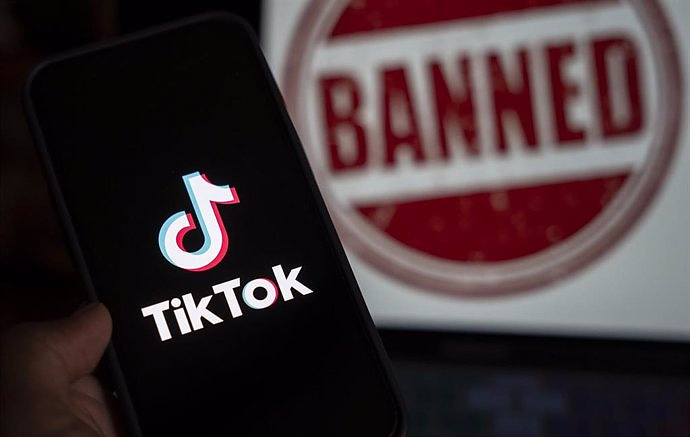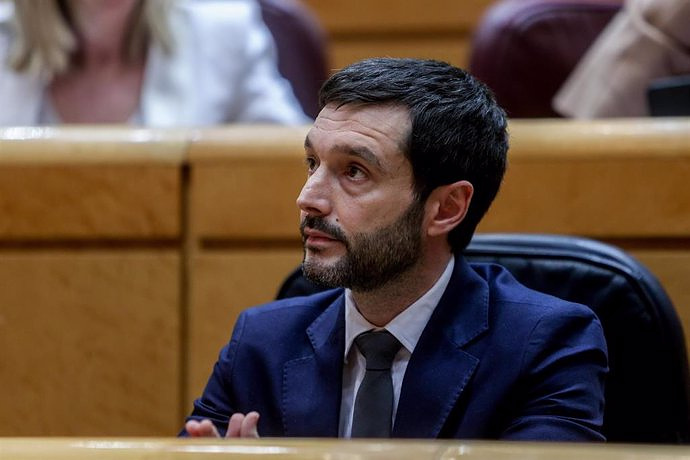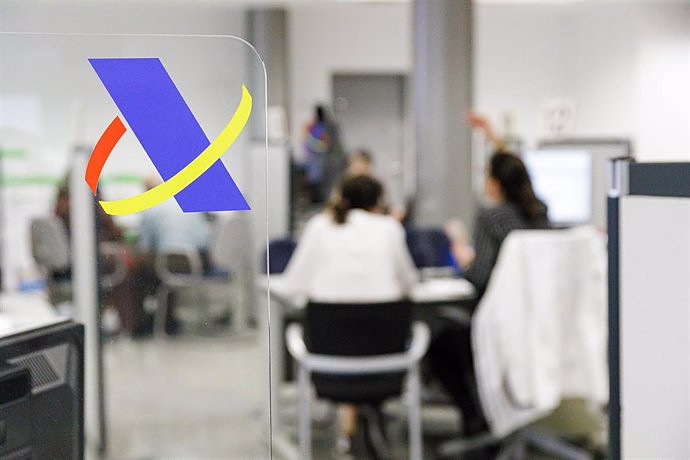Warns that the announcements about increases in the SMI, which they consider "excessive", block the negotiations
MADRID, 2 Sep. (EUROPA PRESS) -
The Spanish Confederation of Business Organizations (CEOE) has asked "institutions" to generate an environment favorable to reaching agreements in a way that avoids social conflict and has urged "not to make statements that favor tension".
The statement released this Friday by the employers' association comes a day after the Second Vice President of the Government and Minister of Labor and Social Economy, Yolanda Díaz, has reiterated to the business representatives her request to "sit back at the table" of the negotiation of the salary increase, also assuring that the unions "are right" and that their exit is "the correct one".
Faced with this, from CEOE they have stressed their willingness to continue negotiating, also defending that "they have never gotten up from any table".
In any case, the employers have explained that after successive proposals to close a salary agreement before the summer, it was not possible to reach it due to the demand of the unions to introduce clauses to link salaries to the CPI. "Out of responsibility we could not assume it, since it would cause the perverse effects of inflation to become permanent (second-round inflation)," they explained.
Likewise, the employers' association has assured that they will continue to sit at the negotiating tables of collective agreements, "which is where wages are de facto agreed", and has assured that the negotiation takes place in the usual parameters "in times of difficulty".
In any case, CEOE has pointed out that although the crisis contexts make it difficult to negotiate collective agreements, the announcements about increases that they consider "excessive" in the Interprofessional Minimum Wage -it has increased by 35.9% since 2018-- " they block the negotiations while waiting for what is finally approved, since these have an impact on the salary tables, representing in practice an interference in collective bargaining".
Regarding the data on unemployment and affiliation to Social Security for August known this Friday, the CEOE has warned that the trend towards a slowdown in the labor market in line with economic indicators is confirmed.
Thus, from a more global perspective, the employers have warned that the economic indicators already reflect how the escalation of inflation to double-digit levels is having a significant impact on the pockets of citizens and on the activity of companies.
Faced with this, the employers have indicated that this increase in inflation is already producing, instead, a greater tax collection, which will end the year at historical maximums. In this sense, CEOE has criticized that the Administration continues to propose spending policies that put more pressure on public debt, while increasing the tax burden on companies even more.
Instead, the CEOE has suggested to the Executive that it choose to dedicate extraordinary tax revenues to provide more aid to citizens and the productive fabric.
For the employers, it is necessary to find solutions to the escalation of energy prices that are managing to paralyze many plants in the industrial sector (electro-intensive, cogeneration*) and to the problems that persist in the supply chains of raw materials.
Thus, he believes that it would be more advisable to take advantage of the greater fiscal margin to reduce the personal income tax bill in favor of citizens' pockets and in order to also alleviate costs for companies.
Likewise, the employers consider that it would be convenient to bet on dedicating these greater efforts to promoting the training of workers, especially those who earn lower incomes, focusing it on the future challenges posed by the economy.
In the case of companies, the employers believe that a cost reduction could also be proposed through social contributions and match the prices of public contracts, assuming the Administration the same obligations that are required of the private sector.

 Exploring Cardano: Inner Workings and Advantages of this Cryptocurrency
Exploring Cardano: Inner Workings and Advantages of this Cryptocurrency Seville.- Economy.- Innova.- STSA inaugurates its new painting and sealing hangar in San Pablo, for 18 million
Seville.- Economy.- Innova.- STSA inaugurates its new painting and sealing hangar in San Pablo, for 18 million Innova.- More than 300 volunteers join the Andalucía Compromiso Digital network in one month to facilitate access to ICT
Innova.- More than 300 volunteers join the Andalucía Compromiso Digital network in one month to facilitate access to ICT Innova.-AMP.- Ayesa acquires 51% of Sadiel, which will create new technological engineering products and expand markets
Innova.-AMP.- Ayesa acquires 51% of Sadiel, which will create new technological engineering products and expand markets Prosecutor's Office requests the filing of a new case against Shakira for alleged tax crime
Prosecutor's Office requests the filing of a new case against Shakira for alleged tax crime The Constitutional Court endorses the law that criminalizes harassment in abortion clinics
The Constitutional Court endorses the law that criminalizes harassment in abortion clinics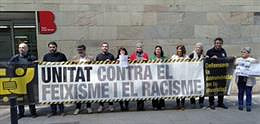 PSC and Junts join the commitment not to agree with Vox or Aliança Catalana
PSC and Junts join the commitment not to agree with Vox or Aliança Catalana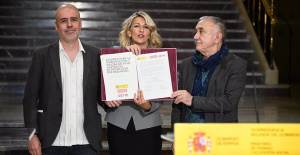 This is the subsidy reform: higher amounts and beneficiaries and compatibility of unemployment with a salary
This is the subsidy reform: higher amounts and beneficiaries and compatibility of unemployment with a salary How Blockchain in being used to shape the future
How Blockchain in being used to shape the future Not just BTC and ETH: Here Are Some More Interesting Coins Worth Focusing on
Not just BTC and ETH: Here Are Some More Interesting Coins Worth Focusing on They develop devices for the precise diagnosis of cancer patients
They develop devices for the precise diagnosis of cancer patients UMH researchers are working on a high-quality apricot crop that requires less irrigation water
UMH researchers are working on a high-quality apricot crop that requires less irrigation water The UPV develops an application to improve the quality of life of patients with glioblastoma
The UPV develops an application to improve the quality of life of patients with glioblastoma A sensor system obtains the fingerprint of essential oils and detects if they have been adulterated
A sensor system obtains the fingerprint of essential oils and detects if they have been adulterated A million people demonstrate in France against Macron's pension reform
A million people demonstrate in France against Macron's pension reform Russia launches several missiles against "critical infrastructure" in the city of Zaporizhia
Russia launches several missiles against "critical infrastructure" in the city of Zaporizhia A "procession" remembers the dead of the Calabria shipwreck as bodies continue to wash up on the shore
A "procession" remembers the dead of the Calabria shipwreck as bodies continue to wash up on the shore Prison sentences handed down for three prominent Hong Kong pro-democracy activists
Prison sentences handed down for three prominent Hong Kong pro-democracy activists ETH continues to leave trading platforms, Ethereum balance on exchanges lowest in 3 years
ETH continues to leave trading platforms, Ethereum balance on exchanges lowest in 3 years Investors invest $450 million in Consensys, Ethereum incubator now valued at $7 billion
Investors invest $450 million in Consensys, Ethereum incubator now valued at $7 billion Alchemy Integrates Ethereum L2 Product Starknet to Enhance Web3 Scalability at a Price 100x Lower Than L1 Fees
Alchemy Integrates Ethereum L2 Product Starknet to Enhance Web3 Scalability at a Price 100x Lower Than L1 Fees Mining Report: Bitcoin's Electricity Consumption Declines by 25% in Q1 2022
Mining Report: Bitcoin's Electricity Consumption Declines by 25% in Q1 2022 Oil-to-Bitcoin Mining Firm Crusoe Energy Systems Raised $505 Million
Oil-to-Bitcoin Mining Firm Crusoe Energy Systems Raised $505 Million Microbt reveals the latest Bitcoin mining rigs -- Machines produce up to 126 TH/s with custom 5nm chip design
Microbt reveals the latest Bitcoin mining rigs -- Machines produce up to 126 TH/s with custom 5nm chip design Bitcoin's Mining Difficulty Hits a Lifetime High, With More Than 90% of BTC Supply Issued
Bitcoin's Mining Difficulty Hits a Lifetime High, With More Than 90% of BTC Supply Issued The Biggest Movers are Near, EOS, and RUNE during Friday's Selloff
The Biggest Movers are Near, EOS, and RUNE during Friday's Selloff Global Markets Spooked by a Hawkish Fed and Covid, Stocks and Crypto Gain After Musk Buys Twitter
Global Markets Spooked by a Hawkish Fed and Covid, Stocks and Crypto Gain After Musk Buys Twitter Bitso to offset carbon emissions from the Trading Platform's ERC20, ETH, and BTC Transactions
Bitso to offset carbon emissions from the Trading Platform's ERC20, ETH, and BTC Transactions Draftkings Announces 2022 College Hoops NFT Selection for March Madness
Draftkings Announces 2022 College Hoops NFT Selection for March Madness

